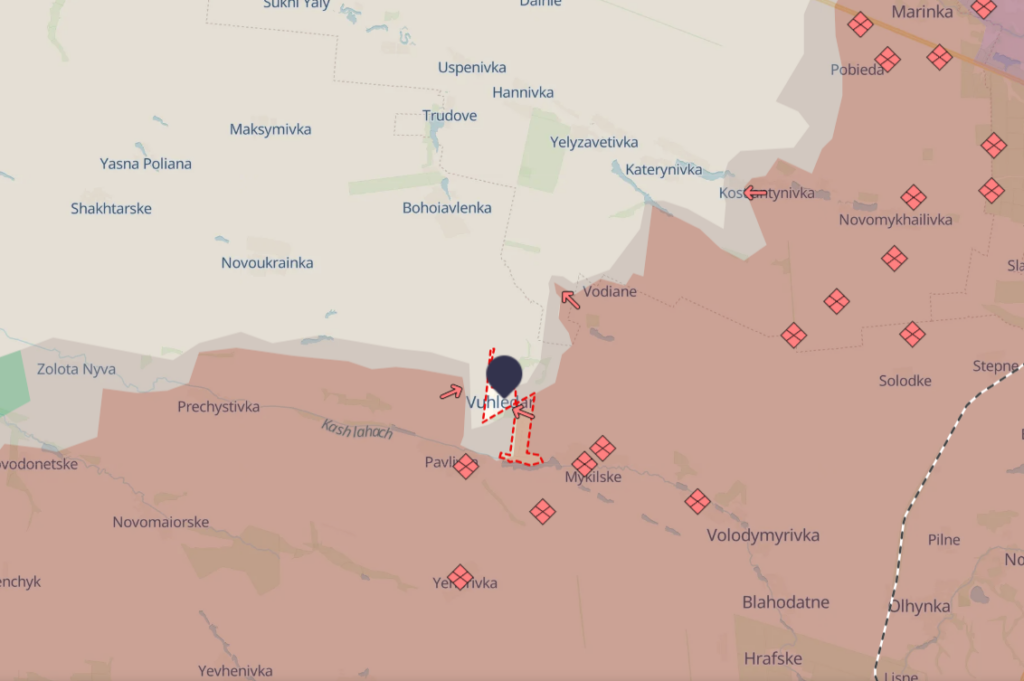Forbes: Russian forces may capture Vuhledar amid heavy personnel, vehicle losses
The potential capture of Vuhledar by Russian forces highlights the enormous cost of their offensive, with losses amounting to nearly 6% of their total vehicle casualties in Ukraine.


Russian forces appear to be on the verge of capturing the Ukrainian town of Vuhledar after nearly two years of costly attempts, Forbes reports.
Vuhledar, a town with a pre-war population of 14,000 in Ukraine’s Donetsk Oblast, is a strategically important city on high ground that the Russians want to use for further advances and offensives.
The Institute for the Study of War (ISW) reported that Russian forces made “incremental advances” in the area on 25 September.
The 57th Motor Rifle Brigade has reportedly breached the defenses of the Ukrainian 72nd Mechanized Brigade, with Russian troops now in southern Vuhledar.
“Now Russian troops are in southern Vuhledar—and the weary Ukrainian garrison may already be retreating to the north,” the report indicates.
The assault on Vuhledar has reportedly resulted in the loss of “around a thousand vehicles and potentially several thousand troops” for the Russian armed forces.
The 72nd Mechanized Brigade’s defense of Vuhledar has been particularly effective. “The 72nd Mechanized Brigade’s stubborn defense of Vuhledar—with mines, artillery, anti-tank missiles and drones—has destroyed entire Russian brigades,” the report states.
Previous attempts to capture the town were notably disastrous for Russian forces. The 155th Naval Infantry Brigade, which typically consists of around 3,000 troops, suffered heavy losses.
According to WarSpotting, a collective that tracks vehicle losses, Russian forces have lost “around a thousand tanks, fighting vehicles, trucks and artillery pieces” in the area. This figure represents “nearly six percent of all vehicles Russia has lost in 31 months of hard fighting in Ukraine.”
Read also:
- UK intel: Russian forces increasing pressure on Vuhledar by implementing multi-pronged assault tactics
- ISW: FSB forces now fighting in Russia’s Kursk Oblast
- Russian troops use UAVs for nighttime mining of Kharkiv front lines
You could close this page. Or you could join our community and help us produce more materials like this.
We keep our reporting open and accessible to everyone because we believe in the power of free information. This is why our small, cost-effective team depends on the support of readers like you to bring deliver timely news, quality analysis, and on-the-ground reports about Russia's war against Ukraine and Ukraine's struggle to build a democratic society.
A little bit goes a long way: for as little as the cost of one cup of coffee a month, you can help build bridges between Ukraine and the rest of the world, plus become a co-creator and vote for topics we should cover next. Become a patron or see other ways to support.

